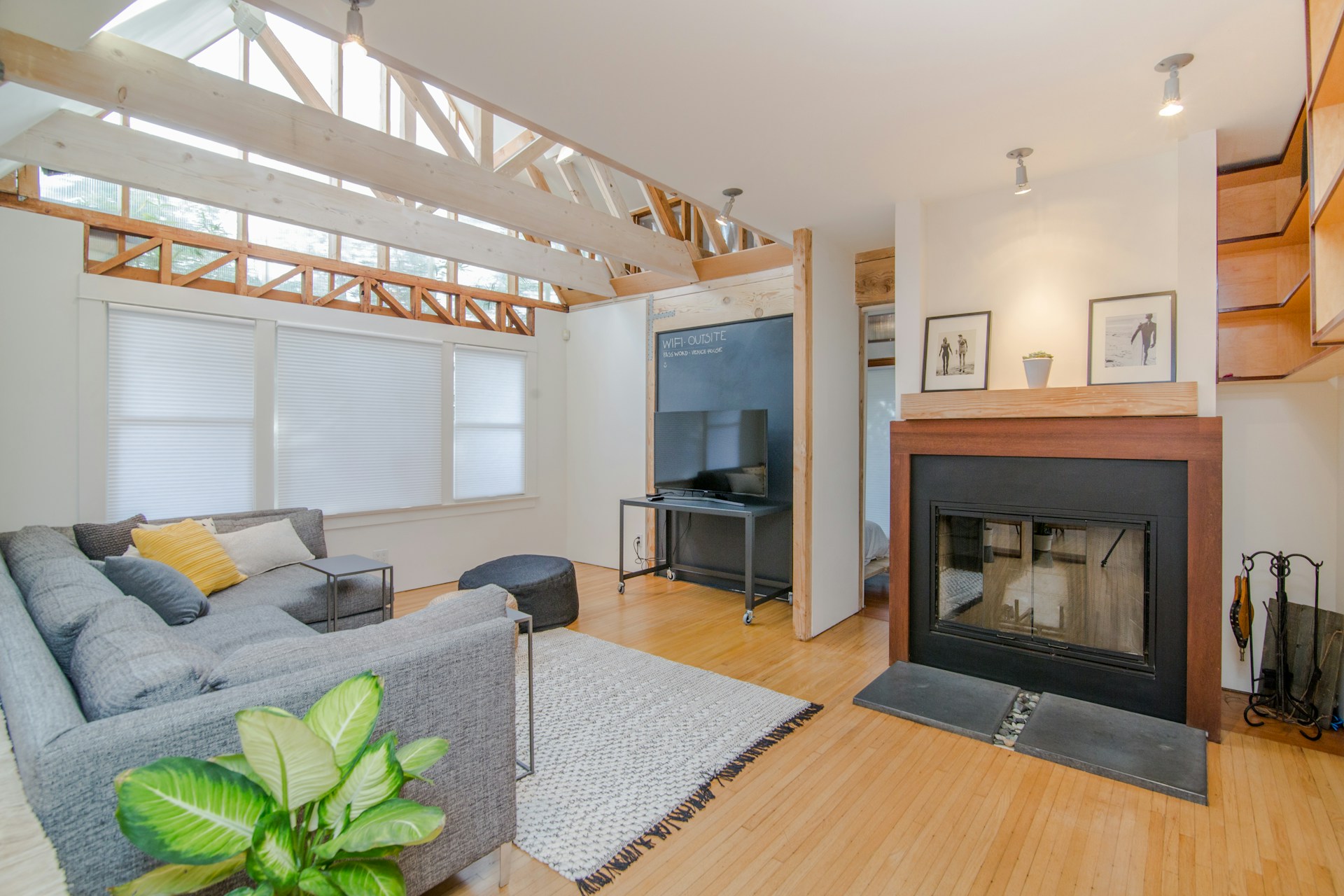Live in Thailand: Advantages, disadvantages & costs
Find out what it's like to live in Thailand, how good the quality of life is and what advantages and disadvantages it offers.
Want to live in Thailand? Here’s what you need to know. From the real cost of living to adjusting to a new culture, this guide covers the pros, the cons, and what life in Thailand is really like.
Living in Thailand means starting your mornings with street food in Chiang Mai, watching the sun set behind golden temples in Bangkok, or answering emails from a beachfront café in Koh Samui. It’s no wonder this country has become a magnet for digital nomads, entrepreneurs, and travelers alike. Offering a lifestyle that’s affordable, dynamic, and full of color.
Ready to move to the land of smiles? Read on and find out if this destination is what you are looking for in your next step.
Quality of life in Thailand
Thailand is a great place to live without spending a lot. It’s perfect if you want a laid-back lifestyle surrounded by nature, culture, and good amenities at affordable prices. Even with all the tourists, the cities and towns still hold onto their traditional charm while mixing in modern touches. Whether you’re in lively cities, quiet villages, or stunning beach spots, living in Thailand can be truly enjoyable.
That said, settling down comes with its own challenges. No matter how beautiful the beaches are, it’s tough to feel at home if you struggle with local customs or the language barrier. Don’t worry, we’ll break down what living in Thailand really means, covering everything from quality of life to the pros and cons.
You’re probably wondering about things like healthcare, schools, cost of living, and safety in Thailand’s big cities. These are common questions, and we’ll cover some of the key answers to help clear things up.
Education in Thailand
Education in Thailand is free and compulsory from elementary through high school, but most expats choose private or international schools (especially if they’re moving with kids).
In cities like Bangkok, Chiang Mai, and Phuket, you’ll find high-quality international schools with British, American, or IB curriculums. They teach in English and attract students from around the world, though tuition can be on the expensive side.
If you’re looking to study Thai or take university courses, there are options at public institutions like Chulalongkorn University or Chiang Mai University. They also offer English-language programs designed for international students.
Is Thailand a safe country?
One of the big perks of living in Thailand is how safe it is. Violent crime is rare, and petty theft or tourist scams are pretty uncommon. In fact, Thailand is often ranked among the safest countries in Southeast Asia. Add to that the warm, welcoming nature of the Thai people, and it’s easy to see why newcomers feel at home right away.
Something you might not have considered is the strong influence of Buddhism, which emphasizes non-violence, respect, and compassion. That cultural foundation plays a big role in making Thailand generally safer than many Western nations.
Of course, living in the capital is a whole different experience compared to life in the northern cities or the southern islands. Bangkok can feel hectic and overwhelming at times, but it’s still considered safe compared to most major cities around the world. On the other hand, places like Chiang Mai, Hua Hin, or Krabi offer a much more laid-back vibe and a safe, relaxed lifestyle.
One common issue tourists and newcomers often run into is scams. The good news is, they’re easy to avoid if you take a few simple precautions. Be wary of deals that seem too good to be true, tuk-tuk or taxi drivers who insist on taking you to certain shops (where they earn a commission), and offers involving fake gems or jewelry.
Cost of living in Thailand
Thailand is one of the most affordable countries to live in, especially for digital nomads earning in foreign currency. That’s a big part of why more and more remote workers are choosing to make it their home.
The average local salary in Thailand is around $500 to $600 a month, but if you work remotely for a foreign company or earn in dollars or euros, your money can go a long way. To give you an idea, living comfortably in many parts of the country is totally doable for under $1,000 a month.
Rent, street food, transportation, and services like haircuts, cleaning, or massages are all very affordable. Just watch out for imported goods, they tend to be pricey compared to local products.
Even in Bangkok, you can live quite comfortably on $1,200 to $1,800 a month and enjoy a high standard of living. In Chiang Mai or smaller cities, you’ll need even less to live well.
Quality of healthcare in Thailand
Thailand has a mixed healthcare system. Public hospitals are affordable and open to both locals and foreigners, but expect longer wait times and limited English-speaking staff. And that can be tricky, just imagine trying to explain your stomach pain to a doctor who only speaks Thai!
On the other hand, private healthcare in Thailand is top-notch, featuring modern hospitals, advanced technology, and plenty of English-speaking doctors. Facilities like Bumrungrad International and Bangkok Hospital are well-known for medical tourism, offering high-quality care at prices much lower than in Europe or the USA.
That said, like many expats, it’s a good idea to get international or local health insurance. This way, you’re covered for doctor visits, tests, emergencies, and hospital stays. You’ll often get faster, smoother service, plus care in your own language.
Internet connectivity and technology
Thailand has great internet coverage pretty much everywhere. In places like Bangkok, Chiang Mai, Pattaya, and Phuket, it’s easy to get fast and reliable fiber-optic connections with affordable prices.
Mobile internet is fast and reliable too, with coverage reaching even islands and rural areas. Providers like AIS, TrueMove, and DTAC offer affordable Thailand SIM cards and data plans, perfect for anyone traveling around the country.
Thailand has really embraced digital life—whether it’s ordering food, getting around, paying bills, managing health, or handling official stuff, apps make everything easy. For digital nomads and remote workers, it’s one of the best-connected places in Asia.
That said, to stay connected wherever you go, it’s worth checking out monthly plans from Holafly. Their unlimited data plan, for example, gives you a global eSIM that lets you travel across Southeast Asia (and beyond) without worrying about high costs or surprise charges.
Important: If you are a frequent traveler and want to use your phone in Thailand without worrying about expensive roaming or looking for a new SIM at every destination, Holafly’s subscription plans are for you. With a single eSIM, enjoy internet in more than 170 countries for a fixed price and no surprises on your bill. Travel without limits and connect easily and securely! 🚀🌍

Advantages of living in Thailand
Thailand has everything you need for a comfortable lifestyle: beautiful nature, low living costs, reliable internet, good healthcare, and friendly locals. It’s easy to see why so many people from around the world are making it their home, whether to work, live, or simply embrace a new way of life.
Coming up, we’ll go over the top reasons to live in Thailand. By the time we’re done, you’ll have plenty of good reasons to think about making the move.
Affordable cost of living for foreign exchange earners
Like we’ve mentioned before, one of Thailand’s biggest draws is how affordable it is without sacrificing quality. Eating out is inexpensive, rent is reasonable, and everyday services like laundry, transport, and entertainment won’t break the bank. Even in the biggest cities, you can enjoy a good lifestyle without spending a fortune. Let’s look at some real examples:
- Renting a house in the center of Bangkok: From $445.
- Living in a coliving (e.g. Haven Coliving in Nimmanhaemin): From $315.
- A plate of Pad Thai (stir-fried noodles) in a restaurant: $1.83.
- Train ride from Bangkok to Chiang Mai (long distance): $24.
- Monthly bicycle rental: $30
- Entrance fee to Bangkok Grand Palace (one of the capital’s star attractions): $16.50.
- Island tour and snorkeling from Koh Phi Phi: $15-24.
This makes it an ideal option for digital nomads, remote workers, students or retired people with income in dollars or euros.
Delicious, varied and inexpensive food
Thai food is another great reason to stick around. There’s traditional dishes like pad thai, green curry, and som tam, to vegetarian, Western, and international options in the bigger cities.
If you’re not into cooking, you can easily grab delicious meals every day at street stalls or local restaurants for just a couple of dollars. But if you like to prepare your own food, supermarkets have tons of fresh produce and ingredients that won’t cost you much.
Year-round warm climate
Another big plus of living in Thailand is the tropical climate, perfect if you love warm weather and spending time outdoors. But if you’re the type who enjoys cozying up by the fire with hot chocolate and a good book, you might want to look elsewhere.
Thailand has two main seasons. The dry season, from November to April in most areas, brings pleasant temperatures, clear skies, and plenty of sunshine. Then comes the rainy season, from May to October, when heavy downpours usually hit in the afternoons. While tropical storms aren’t uncommon, they rarely cause major problems.
In the south, where the islands are, it’s warm year-round. Up north, the climate is milder though it rarely gets cold. That means you can go hiking in the mountains or snorkeling anytime you want.
Good digital infrastructure for remote work
With fast internet, well-equipped coworking spaces, plenty of coliving options, cafés with strong WiFi, and cities geared toward digital nomads, Thailand ranks as one of the top destinations for remote work.
Places like Chiang Mai, Bangkok, Phuket, and Koh Phangan are home to lively international scenes and up-to-date workspaces. Living in Thailand means you can connect with people from everywhere and take part in lots of global events and meetups.
If there is one country that is attractive to digital nomads, it’s Thailand.
Hospitable culture and friendly people
That warm Thai smile isn’t just a stereotype. It’s part of a culture that really values respect, harmony, and friendliness. Whether you’re buying something at the market, asking for directions, or dealing with official stuff, most people will welcome you kindly and be eager to help.
While the language can be a challenge at first, you’ll often find English speakers in tourist spots and cities. With an open attitude, fitting in usually happens quickly and smoothly.
Diverse environment: From paradisiacal beaches to vibrant cities
There’s an endless list of things to do in Thailand. So, if you’re not ready to move there permanently, I’d suggest staying for a couple of months to really get to know the country. Ancient temples, massive Buddha statues, mountain hiking trails, beaches that have starred in movies, islands in the Andaman Sea, elephant sanctuaries, floating markets, rice fields… and that’s just the beginning.
Where to live in Thailand? If you want beaches year-round, islands like Koh Samui, Koh Lanta, or Phuket are perfect. You could also base yourself in Krabi, which has plenty of options for long-term stays.
If you’re after a quieter, more creative vibe, Chiang Mai is the perfect spot. On the other hand, Bangkok offers a bustling, cosmopolitan life while still keeping its unique Asian charm.
The geographical and cultural variety allows you to change scenery without leaving the country.

Disadvantages of living in Thailand
Living in Thailand isn’t all smooth sailing. If you’re coming from the West, you’ll face a whole new culture, unfamiliar tastes, a language that might seem impossible to crack, and the reality of being far away from your loved ones.
Let’s take a look at the disadvantages, so that you have a full picture of what moving to the country entails.
Language barrier outside of tourist areas
While you’ll find English spoken in Bangkok and major tourist spots, in smaller towns and rural areas communication can be tricky if you don’t speak Thai. This might make things like paperwork, doctor visits, or even ordering food at a local restaurant more challenging.
If you’re thinking about living in Thailand for a while, picking up some Thai is a smart move. Even just the basics will make daily tasks like ordering food, asking for directions, or bargaining a lot easier. Plus, speaking some Thai, even imperfectly, signals that you’re familiar with the culture, which can help you avoid getting scammed.
One tip for learning Thai is to use some free apps, you’ll find there are many available on Play Store and App Store and with good ratings.
Changing visas and regulations
Visas in Thailand can be pretty complicated and the rules change all the time. Whether it’s a tourist, student, retirement, or work visa, each one has its own requirements. On top of that, immigration policies can shift with little warning, so you’ll want to keep an eye on updates.
The smartest move is to always check official sources or work with an immigration expert who can help you handle all the paperwork. Many digital nomads juggle tourist visas by hopping between neighboring countries, but that approach has its limits and can be risky if you don’t plan carefully.
High rainy season and high humidity
Like we mentioned, Thailand’s tropical climate means it’s pretty humid. From May to October, the monsoon season usually brings daily afternoon showers. So, if you’re planning outdoor activities, mornings are often your best bet.
Keep in mind that heavy rains in some areas can disrupt transportation, cause connectivity issues, and even lead to flooding. The humidity stays high year-round, which might feel uncomfortable if you’re not used to it.
Heavy traffic in large cities
Bangkok’s traffic can feel intense, mainly because of the huge number of motorbikes. Rush hours get pretty crazy, and trips by car or taxi often take much longer than planned. Public transit like the BTS Skytrain and MRT is helpful but doesn’t reach every neighborhood, so many people still depend on cars or motorbikes to get around.
To keep stress levels down, try to find a place to live close to your work or school. You can also get around using electric scooters, bikes, or ride-hailing apps like Grab, which usually make daily commuting a lot easier.
Culture shock and time differences
Thai culture is quite different from Western norms. It values calmness, avoiding conflict, and respecting hierarchy. If you’re used to quick answers, straightforward solutions, or expecting everyone to be treated exactly the same, this might feel a bit frustrating at first.
It’s all about managing your expectations. In Thailand, a “yes” often really means “I’m not sure how to say no,” and waiting around is just part of daily life. Keeping this in mind will make things go a lot smoother for you.
So, why not start getting ready to move to Thailand? It doesn’t have to be forever, you can stay for as long as your visa lets you and really enjoy the experience. Trust me, it’s something you won’t forget.
Frequently asked questions about living in Thailand
You can’t legally work on a tourist visa in Thailand. If you want to have a proper job there, you’ll need to get a work visa and the right permits. A lot of digital nomads do remote work for clients overseas while living in Thailand, but it’s smart to understand the rules and possible risks before doing so.
Thailand is a top medical tourism spot in Asia. Private hospitals are equipped with cutting-edge technology, internationally trained doctors, and English-speaking staff. Public healthcare quality can vary but is affordable. Many expats mix both options or get international health insurance for extra peace of mind.
In Thailand, you’ll find plenty of affordable options for monthly rentals, from apartments and houses to coliving spaces and resorts. It’s pretty easy to find places through sites like RentHub, Thai Apartment, or even Facebook groups. And in many cities, rental agreements can be flexible, so you don’t have to sign up for a whole year upfront.
If you want to live in Thailand, you’ll need the right visa depending on how long and why you’re staying. For short trips, a tourist visa covers about two months, with a possible extension. But if you’re thinking of staying longer, there are other options like the O-A o O-X visas or the Long-Term Resident Visa for digital nomads. Each one has different rules, so make sure to check all the details before you make plans.





 Language
Language 


















 No results found
No results found








